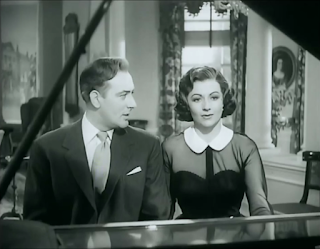A look back at the career of E C Bentley who wrote the detective novel that heralded the Golden Age
The writer and journalist E C Bentley, who is credited with writing the first modern detective story, Trent’s Last Case, died 65 years ago today in London.
E C Bentley intended his novel to
be a send-up of the detective genre
Agatha Christie, who wrote her own first detective novel seven years later, said Trent’s Last Case was ‘one of the best detective stories ever written’.
Dorothy L Sayers, whose first detective novel was published in 1923, said Bentley’s novel ‘holds a very special place in the history of detective fiction.’
But when Bentley wrote Trent’s Last Case, first published in 1913, he intended it to be a major send-up of the genre, which had tended to feature intellectual detectives lacking any obvious human failings.
Edmund Clerihew Bentley was born in London in 1875. He was educated at St Paul’s School and Merton College, Oxford, and then studied Law in London while working as a journalist for several newspapers, including the Daily Telegraph. Although he was called to the Bar in 1902 he continued to work for the Daily Telegraph until he retired in 1934.
But he returned to the newspaper after World War II started because younger men were being called up, retiring again in 1947.
He became friends with the writer of the Father Brown stories, G K Chesterton, while they were still at school and later in life they were both, in turn, president of the Detection Club.
 |
| Agatha Christie spoke in glowing terms of Trent's Last Case |
Bentley thought it should be possible to write a detective story in which the detective was recognisable as an average, fallible human being. He said: ‘It was not until I had gone a long way with the plot that the most pleasing notion of all came to me: the notion of making the hero’s hard won and obviously correct solution to the mystery turn out to be completely wrong…’
The story begins with a powerful and ruthless American capitalist being found dead in the garden of his English country house, fully clothed, but without his false teeth. His young, beautiful widow seems relieved by her husband’s death. The household also includes a butler, a French maid and two young male secretaries.
It appears to be an intriguing case and therefore artist, journalist and amateur detective Philip Trent is sent to investigate by his newspaper.
Bentley planned his novel in just a few weeks while walking from his home in Hampstead to his office and he began work on it by writing the final chapter first.
In the novel, he allows his hero, Trent, to fall in love with the beautiful widow, which was at the time considered against the rules of the genre. He then introduces a plotting innovation that qualifies Trent’s Last Case to take its place among the great detective novels of all time.
 |
| The Collins Crime Club edition of Trent's Last Case |
Bentley was to point out later that it does not seem to have been noticed that the novel is not so much a detective story as an exposure of detective stories.
My copy of Trent’s Last Case, produced by Collins Crime Club, contains an Afterword by Dorothy L Sayers, which was taken from the draft of a talk she had written about a possible radio adaptation of the book, although there is no evidence that the talk was ever delivered.
Dorothy writes: ‘If you were so lucky as to read it today for the first time, you would recognise it at once as a tale of unusual brilliance and charm, but you could have no idea how startlingly original it seemed when it first appeared. It shook the little world of the mystery novel like a revolution, and nothing was ever quite the same again. Every detective writer of today owes something, consciously or unconsciously, to its liberating and inspiring influence.’
I found this particularly interesting as I recalled that in Dorothy’s first novel, Whose Body?, she used the technique used by Bentley in Trent’s Last Case, of a character dressing in the murder victim’s clothes and sleeping in his bed in order to confuse the authorities about the time of death. Whether this was ‘consciously or unconsciously,’ borrowed from Bentley, we don’t know.
I found Trent’s Last Case gripping and well written. I enjoyed it particularly because there isn’t just one surprise at the end, but two. However I don’t want to give anything else away. In the words of Dorothy, it is sufficient to say the novel is ‘a masterpiece.’
 |
| Michael Wilding (above) played Trent opposite the deceased's widow Margaret Lockwood in the 1952 film |
His first collection of poetry, Biography for Beginners, published in 1905, made a form of verse popular, which became known as the clerihew, after his middle name. This four line metrically irregular verse is one of his early examples of the clerihew:
‘Sir Humphrey Davy
Abominated gravy
He lived in the odium
Of having discovered Sodium.’
Bentley dedicated Trent’s Last Case to G K Chesterton saying he owed him a book in return for Chesterton dedicating the Man Who Was Thursday to him.
Trent’s Last Case was adapted into a film three times, in 1920, 1929 and - with Michael Wilding as Trent in a cast featuring Margaret Lockwood and Orson Welles - in 1952.
After 23 years, Bentley relented and decided Trent hadn’t had his last case after all. He wrote Trent’s Own Case in 1936 and a book of short stories, Trent Intervenes, in 1938.
Trent’s Last Case was republished in paperback by Collins Crime Club in 2020.
No comments:
Post a Comment